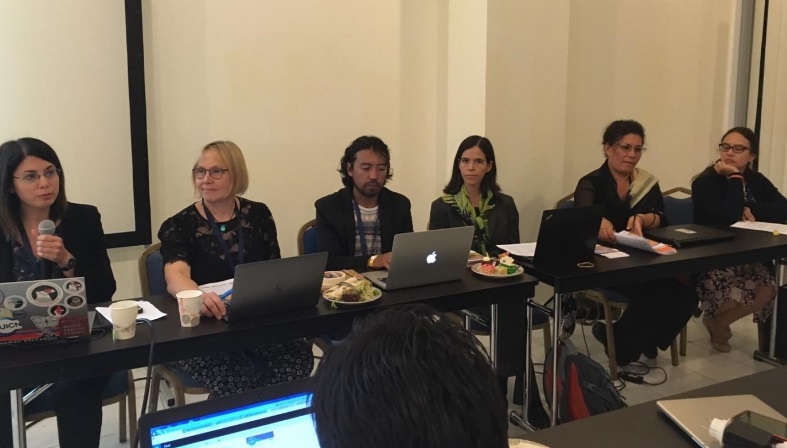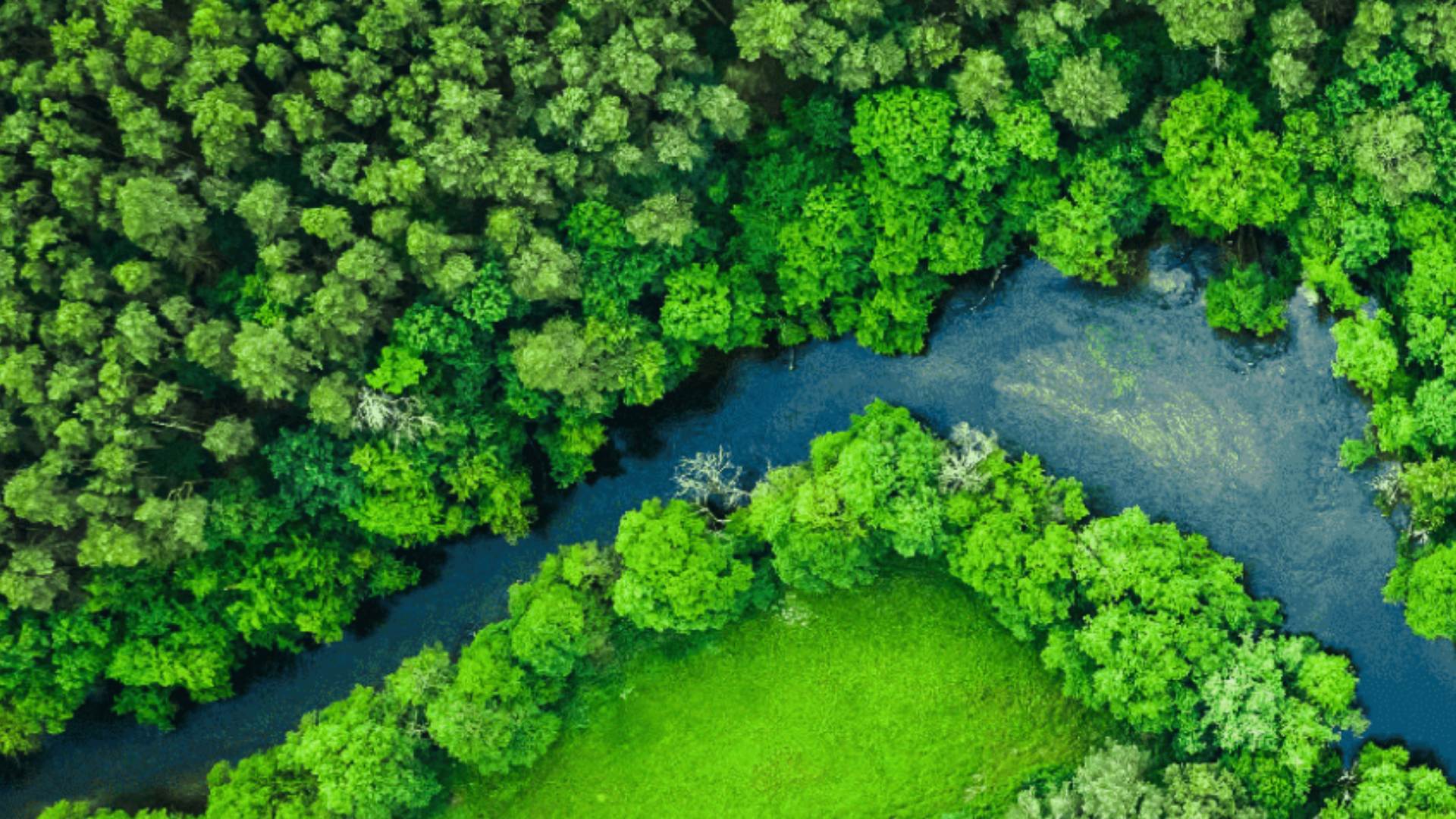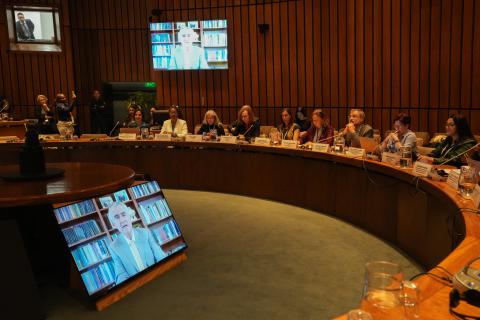Briefing note
The Escazú Agreement was presented at the side event “Implementation of the Convention on Biological Diversity and environmental democracy through Human Rights, Nature Rights and the Escazú Agreement” held on 26 November 2018 in Sharm El-Sheikh, Egypt, in the framework of the 14th Conference of the Parties of the Convention on Biological Diversity (CBD).
Organized by Swedbio, Fundación Ambiente y Recursos Naturales (FARN), Reacción Climática (RC) and CBD Alliance (CBDA), the event was attended by the delegation of Costa Rica (co-chair of the Escazú Agreement) and featured a video message by the Director of the Sustainable Development and Human Settlements Division of ECLAC (Technical Secretariat of the Escazú Agreement).
The aim of the event was to strengthen the relationship between human rights and biodiversity in the framework of the CBD and share the work undertaken on these matters by civil society and at the regional level, focusing on the Escazú Agreement as a fundamental tool for biodiversity conservation and the respect of Nature Rights.
During the event, the central provisions of the Escazú Agreement where highlighted, such as the recognition of the right of every person to live in a healthy environment and the principle of environmental non-regression. Furthermore, recognition was given to the open and convening negotiation process, with a strong and effective public participation. Panelists also stressed the Escazú Agreement’s key role to tackle the current situation of environmental and human rights defenders and persons and groups in vulnerable situations.



